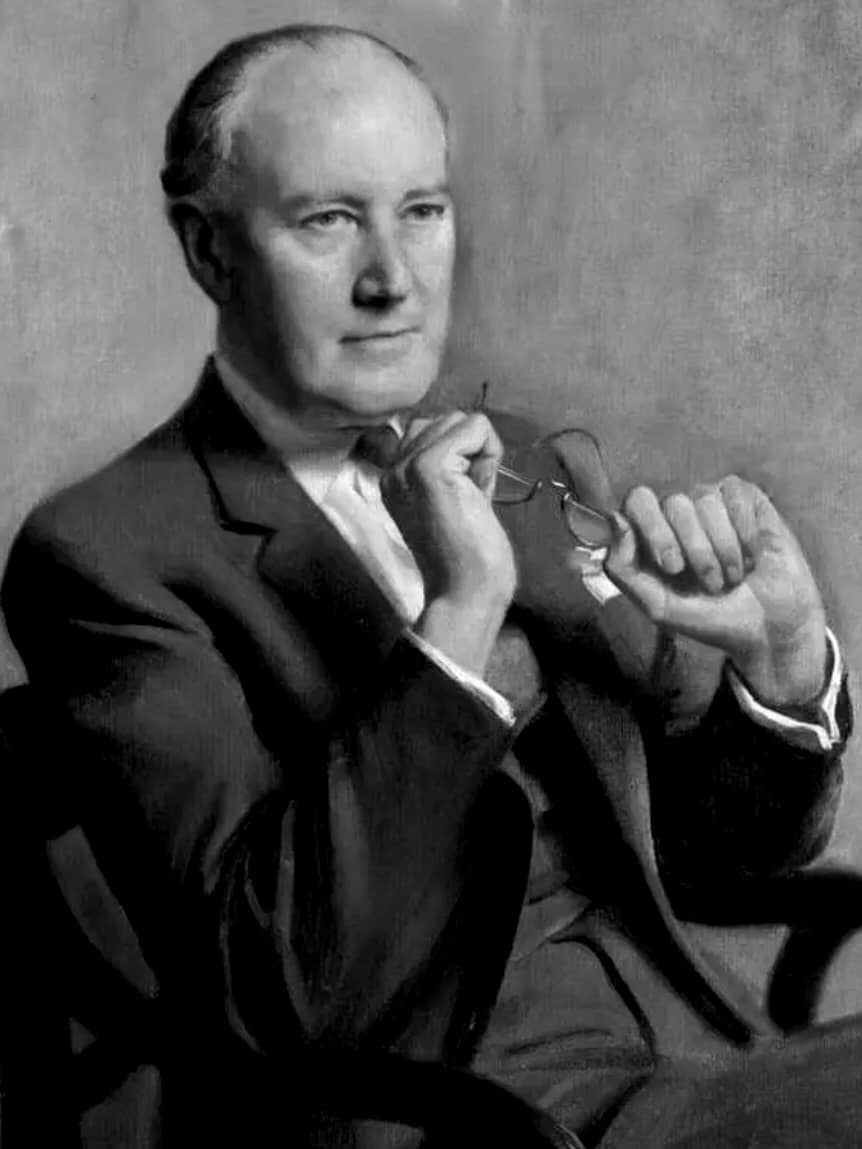MacDonald Critchley

MacDonald Critchley (1900-1997) was an English neurologist
Like Gowers before him, Critchley spent his professional life as a neurologist at the renowned National Hospital for the Paralysed and Epileptic, Queen Square and Kings College Hospital, London
Author of over 200 published articles on neurology and 20 books, including those on the parietal lobes and aphasiology, as well as biographies of John Hughlings Jackson and Sir William Gowers.
Critchley published widely on topics ranging from mirror-writing (1928); Music and the Brain; the history of neurology; the misdemeanours of famous murderers such as August Sangret and essays on eclectic topics collated in the Black Hole (1964), the Divine Banquet of the Brain (1979), the citadel of the senses (1986) and the ventricle of memory (1989)
In later life he interested himself in headaches; he started a headache clinic at King’s College Hospital and was one of the founders of the British Migraine Trust.
Biography
- Born on February 2, 1900 in Bristol, England
- 1918 – cadet battalion of the Royal Air Force and the Infantry of the Wiltshire Regiment in Dublin
- 1922 – medical degree, Bristol University
- 1924 – house physician National Hospital for the Paralysed and Epileptic, Queen Square; trained by the likes of Gordon Holmes, James Collier, Kinnier Wilson, and Risien Russell
- 1928 – consultant physician, National Hospital for the Paralysed and Epileptic, Queen Square
- 1930 – Lecturer in Therapeutics and Applied Pharmacology, King’s College Hospital
- 1935 – physician for nervous diseases, King’s College Hospital
- 1937 – Head of the Department of Neurology, King’s College Hospital
- 1939-1945 Consulting Neurologist and Surgeon Captain in the Royal Navy Volunteer Reserve at HMS Drake
- 1948-1953 Dean of the Institute of Neurology at Queen Square
- Honours. CBE (1962); President of the World Federation of Neurology; president of the Association of British Neurologists; president of the section of neurology of the Royal Society of Medicine
- Died on October 15, 1997
Dr Macdonald Critchley was a meticulous observer of people with neurological disease. He elicited tendon reflexes with a hammer inscribed to him ‘with admiration…Mayo Clinic neurology…March 1968’. The Babinski response was examined using a gold cornuto purchased by Mrs Eileen Critchley in Italy, Dr Critchley having earlier preferred a bird’s feather – one previously belonging to a flamingo from San Diego zoo, another discarded by a pigeon and picked up in the garden at Queen Square by Sister Magnusson of Chandler ward. He opened his letters with a silver paper-knife given to him by Sir Francis Walshe, subsequently in the possession of Ian McDonald, and engraved with the name of each owner. He had in his possession a human skull once owned by Dr Franz Gall, given to Critchley on a visit to the Brain Institute in Vienna, on which Gall had painted many phrenological images
Alastair Compston, Brain 2010
Medical Eponyms
Adie-Critchley syndrome (1927)
A phenomenon caused by tumour of the contralateral frontal lobe superior part of area 6. When an object is placed in one hand of a patient, they grasp it and hold it tightly. If attempots are made to withdraw the object, the grip tightens, and the patient is unable to voluntarily relax their grip to release the object.
William John Adie (1886-1935) and Critchley describe three cases of frontal tumours, in each of which there was marked involuntary grasping and groping movements in the contralateral limb caused by a tumour in the upper and posterior part of the frontal lobes. Attention is drawn to the resemblance in the infant of 3-18 months, whose grasping and groping is not under voluntary control. When the parts of the cortex which subserve the conditioned reflexes are damaged then the unconditioned, less controlled reactions appear.
The movements in the flexors and extensors of the forearm and hand are co-ordinated perfectly so long as the movements are gentle and the hand is empty; yet certain movements of the hand cannot be prevented, and once the hand has closed reflexly upon an object, or has been closed voluntarily and firmly, it cannot be opened. The will to open it is there; the extensors are innervated powerfully but the flexors fail to relax. Relaxation is delayed, and the grip tightens when attempts are made to remove an object from the hand passively and when the patient makes voluntary efforts to relax ; partial or complete relaxation occurs when voluntary innervation ceases, and when the palm is no longer stimulated.
Note: In 1926, John Farquhar Fulton (1899-1960) published his doctoral thesis on Muscular Contraction and the Reflex Control of Movement in which he first described the concept of the Adie-Critchley phenomenon.
Major Publications
- Adie WJ, Critchley M. Forced Grasping and Groping. Brain, 1927; 50(2): 142–170 [Adie-Critchley syndrome]
- Critchley M. Problems of Naval warfare under climatic extremes. Mil Surg. 1946 Feb;98:94
- Critchley M. Sir William Gowers, 1845-1915: a biographical appreciation. London: Heinemann, 1949
- Critchley M. The parietal lobes. London, Edward Arnold, 1953.
- Critchley M. Dyslexia in Braille-Readers. 1962
- Critchley M. Periodic hypersomnia and megaphagia in adolescent males. Brain. 1962 Dec;85:627-56. [Kleine-Levin syndrome]
- Critchley M. Developmental Dyslexia. 1964
- Critchley M. The enigma of Gerstmann’s syndrome. Brain. 1966 Jun;89(2):183-98
- Critchley M. Aphasiology and other aspects of language. 1970
- Critchley M, Henson RA editors. Music and the Brain: Studies in the Neurology of Music.
London: Heinemann, 1977. - Critchley M. Dax’s law. Int J Neurol. 1978;11(4):404-11.
- Critchley M. Divine Banquet of the Brain. Raven Press, New York 1979
- Critchley M, Critchley EA. John Hughlings Jackson, Father of English Neurology. OUP 1998
- Critchley M. The citadel of the senses. 1986
References
Biography
- Compston A. Editorial. Brain 2010; 133(2): 311–313.
- Martinez AM, Moro A, Munhoz RP, Teive HA. MacDonald Critchley. Arq Neuropsiquiatr. 2013 Jan;71(1):61-2.
- Sandrone S, van Gijn J. Macdonald Critchley (1900-1997). J Neurol. 2018 May;265(5):1244-1245.
Eponymous terms
Eponym
the person behind the name
